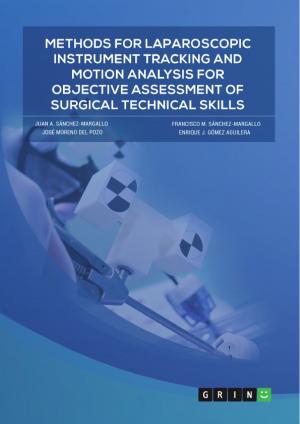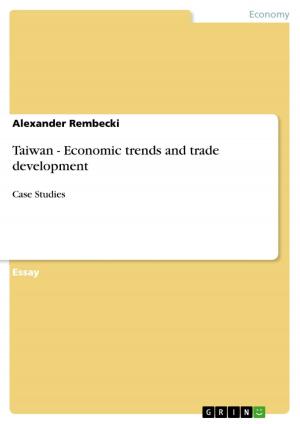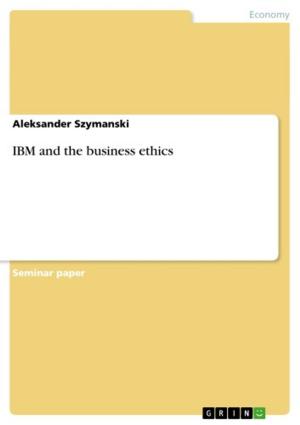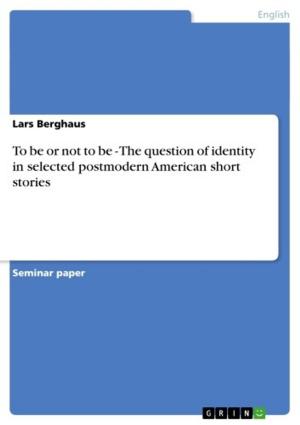| Author: | Kim Vahnenbruck | ISBN: | 9783640811922 |
| Publisher: | GRIN Publishing | Publication: | January 27, 2011 |
| Imprint: | GRIN Publishing | Language: | English |
| Author: | Kim Vahnenbruck |
| ISBN: | 9783640811922 |
| Publisher: | GRIN Publishing |
| Publication: | January 27, 2011 |
| Imprint: | GRIN Publishing |
| Language: | English |
Seminar paper from the year 2010 in the subject English Language and Literature Studies - Linguistics, grade: 1,0, University of Wuppertal, course: Varieties of English, language: English, abstract: At first sight, Rap and Gospel music do not seem to have much in common. That is why I attempt to analyze whether there are any similarities or just discrepancies. The topic deals with The Variety in the Lexicon of Rap and Gospel and therefore, the aim of this paper is the linguistic description of the special lexicon. The foundation of this paper is provided by the presentation held on the 13th of July 2010 in the seminar 'Varieties of English'. I have chosen this topic, because the two styles of music have a similar history, but developed into opposite directions and they are, furthermore, both mostly sung by people of African American descent. Another reason for my choice is that I want to know if the images of Rap and Gospel I have in mind are really true or just prejudices: Are Rap lyrics full of swear words? Is Gospel by some means or other related to Rap? One of the images I have in mind, are the lexicons of Rap and Gospel, because when you listen to two typical song you will clearly hear the differences in speaking and in the choice of words. For my analysis I chose two representative songs: Only God Can Judge Me by the 'gangster rapper' Tupac Shakur (1971-1996) and Judge Me Not by the baptist preacher Timothy Wright (1947-2009). I will start with a general overview of Rap and Gospel, give a short history of their development, so that the same roots of the styles of music become more obvious. In the following, I will present the results of the analyzed domains of register, commencing with the use of swear words and the application to the five types of linguistic forms of swearwords. Then I will go on with the use of slang, and especially the phonological representation of the features of African American Vernacular English, due to the descent of the two singers. Finally, I will summarize my results in a conclusion at the end of this paper.
Seminar paper from the year 2010 in the subject English Language and Literature Studies - Linguistics, grade: 1,0, University of Wuppertal, course: Varieties of English, language: English, abstract: At first sight, Rap and Gospel music do not seem to have much in common. That is why I attempt to analyze whether there are any similarities or just discrepancies. The topic deals with The Variety in the Lexicon of Rap and Gospel and therefore, the aim of this paper is the linguistic description of the special lexicon. The foundation of this paper is provided by the presentation held on the 13th of July 2010 in the seminar 'Varieties of English'. I have chosen this topic, because the two styles of music have a similar history, but developed into opposite directions and they are, furthermore, both mostly sung by people of African American descent. Another reason for my choice is that I want to know if the images of Rap and Gospel I have in mind are really true or just prejudices: Are Rap lyrics full of swear words? Is Gospel by some means or other related to Rap? One of the images I have in mind, are the lexicons of Rap and Gospel, because when you listen to two typical song you will clearly hear the differences in speaking and in the choice of words. For my analysis I chose two representative songs: Only God Can Judge Me by the 'gangster rapper' Tupac Shakur (1971-1996) and Judge Me Not by the baptist preacher Timothy Wright (1947-2009). I will start with a general overview of Rap and Gospel, give a short history of their development, so that the same roots of the styles of music become more obvious. In the following, I will present the results of the analyzed domains of register, commencing with the use of swear words and the application to the five types of linguistic forms of swearwords. Then I will go on with the use of slang, and especially the phonological representation of the features of African American Vernacular English, due to the descent of the two singers. Finally, I will summarize my results in a conclusion at the end of this paper.















